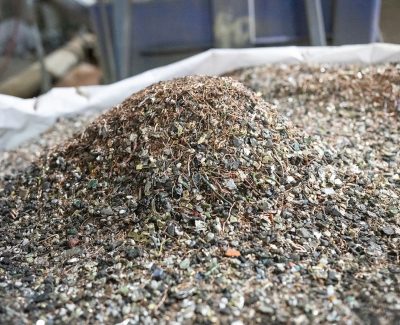What is E-Waste?
The term ‘e-waste’ covers almost every type of discarded electrical and electronic equipment that has already entered, or could eventually enter, the general refuse system. It includes a variety of appliances and devices, both large and small, domestic and commercial, including those that are destined for resale, reuse, disposal, salvage and recycling.
There’s a considerable amount of e-waste as the market for it, and subsequently, the companies who manufacture the products, grows so rapidly. For example, in 2005, large household appliances – fridges, freezers, washing machines and so on – made up 44% of the total e-waste for the EU. And this is set to increase, thanks in part to the much-publicised digital switch-over, as well as the general requirement for, and lower prices of, flat screen TVs and monitors, among other devices and appliances.
Once these products have served their purpose or ceased to function, it’s essential that all e-waste, whether it’s a TV, computer, laptop or mobile phone, is disposed of correctly. That’s because these devices and appliances contain a number of hazardous, toxic and non-biodegradable components, all of which are extremely hazardous to the environment and the surrounding communities.
Of course, e-waste, or Waste Electrical and Electronic Equipment (WEEE), isn’t something that’s country-specific; electronic equipment is used the world over, and each country and region has a range of procedures in place for dealing with such waste in a safe, effective and environmentally sound way.
In the EU, all waste that’s classified as WEEE must be dealt with in accordance with the WEEE Directive, as this was implemented to decrease the amount of electronic equipment sent overseas for unsafe disposal, to increase the amount of e-waste that’s recovered, recycled and reused, and to encourage the manufacturers of such products to develop products that are safer and easier to fix and upgrade, as well as to recycle.
In line with this, the EU has also increased the regulations surrounding different substances that are commonly used in e-waste, limiting the use of such substances in each member state. In addition, there is a strict ban on the exportation of all hazardous waste.
As a result, there’s a growing demand for effective and safe e-waste recycling centres. It’s possible to recycle all manner of e-waste by taking old and defunct electronic and electrical equipment to legitimate e-waste recycling facilities, where on-site recycling is available.
Recycling such waste has a number of benefits, including the recovery of key resources and precious metals that would otherwise be the product of surface mining, and the protection of privacy thanks to the effective and secure processing of hard drives and other items that could contain personal data.
Based in South Yorkshire, Remet Processing have invested £3m in a dedicated, fully licensed WEEE recycling plant, making it one of the UK’s largest and most environmentally efficient processing centres. As such, they’re able to work with large amounts of e-waste, including laptops and computers, and effectively and safely process and recover a wide range of reusable material – including precious and non-precious metals – all in line with the EU’s WEEE Directive.
